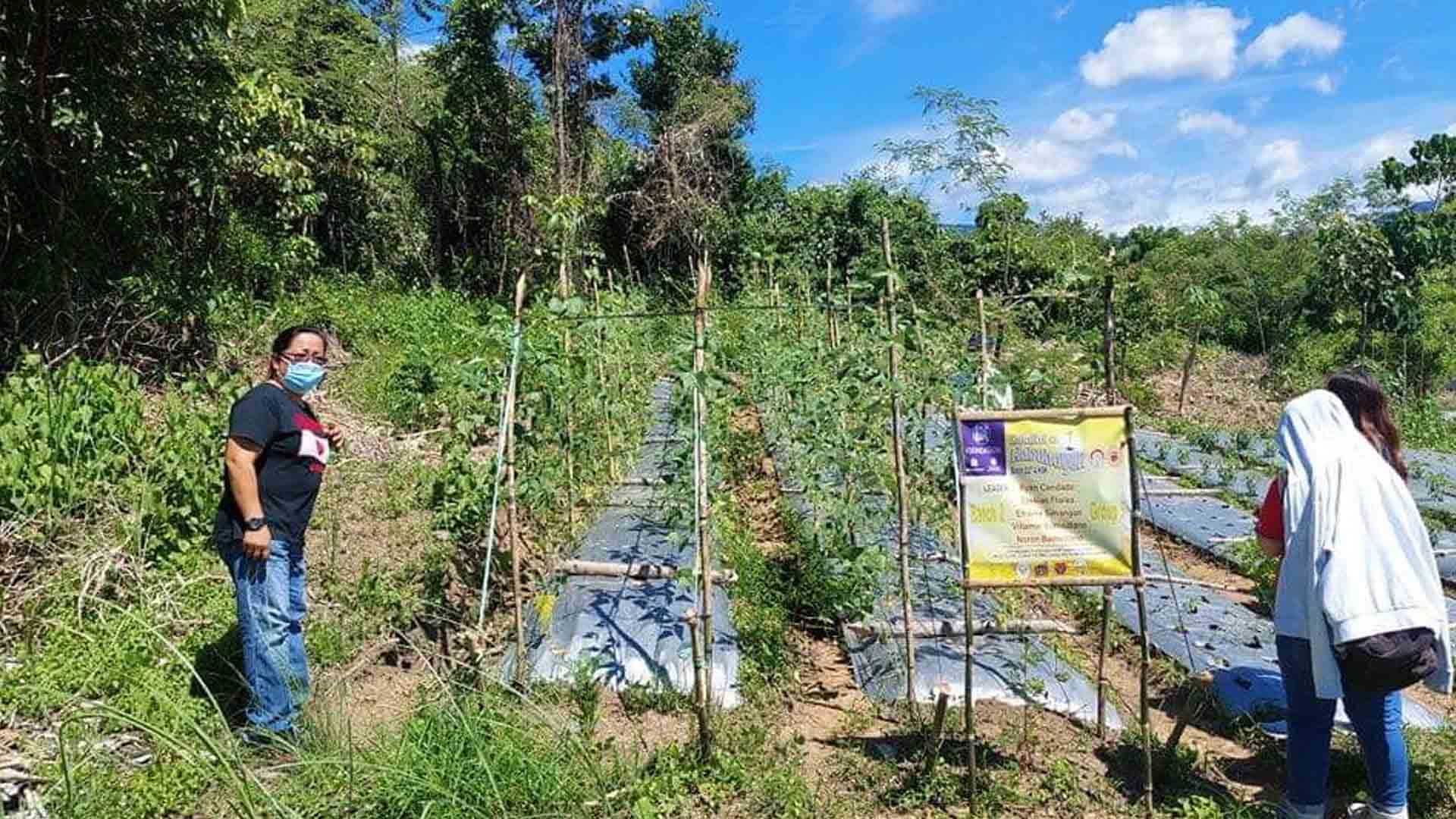SM Foundation (SMFI), through its Kabalikat Sa Kabuhayan on Sustainable Agriculture program (KSK SAP), stretches its efforts to reach our marginalized farmers from grassroots communities and bring them advanced farming techniques.
The training run, which transpired for 14 weeks was conducted on-site and via learning modules. And to enrich the on-site application skillset of each trainee, each participant is assigned with a 100 sqm – in order to strengthen their experiential learning on land preparation, proper seed sowing, transplanting, plastic mulching and harvesting, among others. Aside from agri-production training, they were also assisted in linking with prospective markets and in forming cooperatives.
SM KSK SAP aims to promote agri-preneurship, community empowerment, food security and technology enhancement. Program partners are Technical Education and Skills Development Authority (TESDA), Department of Agriculture (DA), Department of Trade and Industry (DTI), Department of Tourism (DOT), Department of Science and Technology (DOST), St Isidore The Farmer Learning Center Inc, and local government units.
Catalyst for change
Behind every SM Foundation Kabalikat sa Kabuhayan (KSK) farmers’ training program are the trainers who unselfishly share their skills and time to ensure that upon completion of the training program, the participants are equipped with the knowledge and techniques on how to cultivate their lands more productively.
Marlon S. Capsitrano was the trainer for the recently concluded KSK SAP Batch 227 in Nueva Ecija. He holds a BS in Agriculture degree and is also a TESDA trainer. According to him, his trainees are diligent and hardworking, “Masipag sa masipag ang mga estudyante sa Tamale. Dumarating ‘yung point na halos ‘di mo na sila maawat dahil sa eagerness nila dahil ang sabi nila palagi walang nagsisimula sa mataas agad. Naniniwala sila na kailangan nilang samahan ng sipag ang oportunidad na naibigay sa kanila upang umunlad ang kanilang buhay.”
He shared that getting to the agri-demo site was a challenge. It takes almost an hour to reach Sitio Tamale that involves crossing a river, three creeks and a mountain. Aside from the unpredictable climate in the mountainous terrain, is the challenge of the pandemic.

He is grateful for the support from the municipal government of Bongabon for providing a service vehicle. “Hindi kasi makakadaan ang mga regular nasasakyan lamang kaya ang gamit naming madalas ay ang truck ng NDRRMO,” he said. He considers it as a privilege to be part of KSK SAP Batch 227 and shared that there are still many farmers in need of training such as this. “Ito yong masasabi ko na ALL IN ONE na karanasan sa agrikultura.”
KSK on Sustainable Agriculture Program (SAP) Batch 227-A & B was conducted at Sitio Tamale, Barangay Digmala, Bongabon, Nueva Ecija. There were 50 participants composed of members of the indigenous community, beneficiaries of the 4Ps, and other farmers completed the training.

Meanwhile for KSK Batch 226-A at Sitio Sapangmunti, Brgy. San Mateo, Norzagaray, Bulacan that culminated also last month, the lead trainer was Kevin DC. Vitangcol – who is a licensed agriculturist. Armed with a bachelor’s degree in Animal Science from the Bulacan Agricultural State College, he attended several seminars in Rice and Seeds and Farm Mechanization, Agricultural Production, Organic Agriculture Production, and Good Agricultural Practices, among others. He was assisted by Eddie B. Alce who works with the Municipal Agriculture Office of San Miguel, Bulacan and a volunteer in Municipal Employee of Norzagaray Multipurpose Cooperative.
Key takeaways from the program
Aside from learning basic and advanced farming techniques, the training program also provided the participants an opportunity to improve their interpersonal skills. According to Adelaida Hipol, one of the KSK trainees in Nueva Ecija she learned the value of teamwork, solidarity and fellowship because of the program. “Dahil sa KSK, hindi lamang ako natuto ng mga bagong paraan sa pagsasaka, pinakita din ng programang ito saamin ang importansya ng pagtutulungan, pagkakaisa, at pakikisama”.
“Ang KSK training program ang nagbukas ng aking kaalaman kung paano umangat sa pamumuhay. Kailangan nating magkaroon ng positibong isipan at pagtitiwala sa sarili”, Estela Ibale, another KSK graduate said.
Asked what the most important lesson that she learned from the training, KSK Batch 226-A participant Celina Balasoto replied: “Ang pinakamahalaga sa akin ay ang displina sa sarili, isa-puso at isa-isip ang bawat natutunan. Bigyang halaga ang oras at panahon ang mga ginagawa at kung paano mo ito maia-apply sa iyong buhay at kung paano ito pagyayamanin upang sa ganuon ay maingat mo ang antas ng iyong pamumuhay sa tulong ng bawat natutunan mo sa programa.”
Bantay-Gubat Ron Luis R. Cruz and wife Rochelle, grateful for the training are now producing vegetables for their consumption. Their message to future KSK participants: “Maganda ang makasali ka sa KSK Training – sapagkat magkakaroon ka ng kaalaman at matuto kang mag-tanim ng maayos at siguradong may aanihin ka. Basta gawin mo ng maayos ang lahat ng ituturo sa iyo ng inyong trainor kaya payo ko sa lahat ng gustong makilahok sa KSK Training ay makipag-kaisa kayo dahil maganda ang dalang oportunidad ng kanilang training.”








